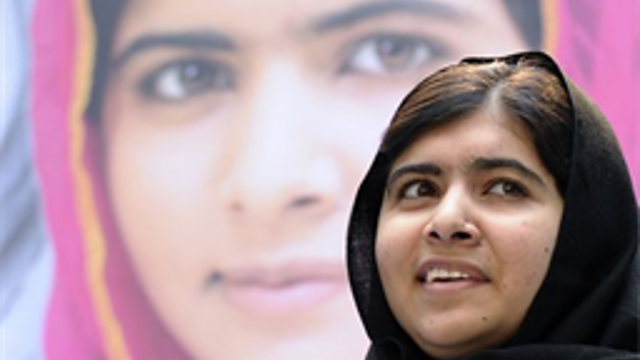USA Today Op-ed by Claes Nobel

Claes Nobel: Celebrate Malala's spirit of youth
Children's rights activist, along with India's Satyarthi, receives Peace Prize this week.
Jan. 3, 2009, was a historic date for young people worldwide. It was the day that 11-year-old Malala Yousafzai's first BBC blog post was published, under a pseudonym, exposing the daily struggles for the rights of girls in the Swat Valley in Pakistan. At the time, Taliban militants were banning girls from attending school, but Malala continued to report violence and intimidation, even after her identity had been discovered.
Following her attempted assassination and recovery, Malala continued her activism for women's rights, advocating for worldwide access to education. Inspired by Malala, a United Nation's petition called for all children to have the right to an education by the end of 2015.
For her bravery and commitment to the crusade for education rights, Malala has been honored with numerous awards, including the 2014 Nobel Peace Prize alongside Kailash Satyarthi of India, who is tirelessly fighting child slavery throughout the world. Both individuals are recognized "for their struggle against the suppression of children and young people and for the right of all children to education," and will receive their awards in Oslo on Wednesday.
As the grandnephew of Alfred Nobel, I have always cherished the significance and power of the Nobel Peace Prizes. The Nobel Peace Prize was established as a branch of the 1895 Nobel Prize created by his will, and since its creation in 1901, 128 Nobel Peace laureates have been honored annually on Dec. 10. The Nobel Committee selects the recipients according to criteria set forth in my great-uncle's will stating that those selecting recipients must grant "prizes to those who, during the preceding year, shall have conferred the greatest benefit on mankind."
Serving as chairman of the National Society of High School Scholars, I am filled with joy at the Nobel Prize committee's selection of children's rights activists Malala and Kailash to share this year's Nobel Peace Prize.
At 17, Malala is the youngest recipient of a Nobel Prize and a true exemplar that young people can, and will, change the world. Her bravery, passion and dedication to world betterment in the face of overwhelming odds provide inspiration and a beacon of hope for the world.
In congratulating Malala for the honor, Pakistani Prime Minister Nawaz Sharif said, "She is (the) pride of Pakistan. She has made her countrymen proud. Her achievement is unparalleled and unequalled. Girls and boys of the world should take the lead from her struggle and commitment."
Malala and Kailash prove that at any age, one may inspire others. We need to encourage our young people to take a stand for global unity. At a time when differences are tearing countries apart, young leaders, when given respect and support, have the power to advocate for equality and initiate change in their local and global community.
This op-ed can be found at: http://www.usatoday.com/story/opinion/2014/12/05/claes-nobel-malala-peace-prize/19903877/